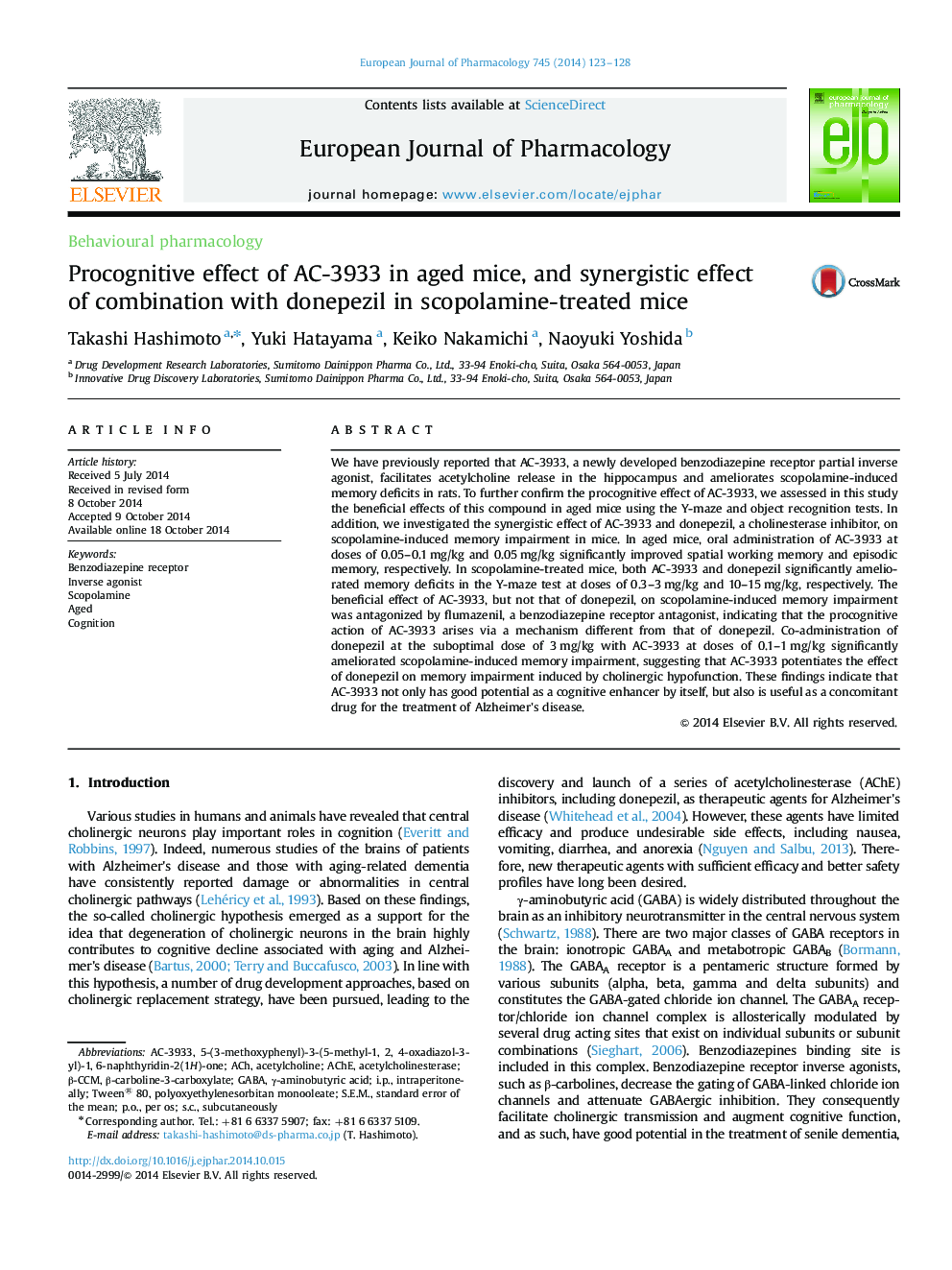| Article ID | Journal | Published Year | Pages | File Type |
|---|---|---|---|---|
| 5827702 | European Journal of Pharmacology | 2014 | 6 Pages |
Abstract
We have previously reported that AC-3933, a newly developed benzodiazepine receptor partial inverse agonist, facilitates acetylcholine release in the hippocampus and ameliorates scopolamine-induced memory deficits in rats. To further confirm the procognitive effect of AC-3933, we assessed in this study the beneficial effects of this compound in aged mice using the Y-maze and object recognition tests. In addition, we investigated the synergistic effect of AC-3933 and donepezil, a cholinesterase inhibitor, on scopolamine-induced memory impairment in mice. In aged mice, oral administration of AC-3933 at doses of 0.05-0.1 mg/kg and 0.05 mg/kg significantly improved spatial working memory and episodic memory, respectively. In scopolamine-treated mice, both AC-3933 and donepezil significantly ameliorated memory deficits in the Y-maze test at doses of 0.3-3 mg/kg and 10-15 mg/kg, respectively. The beneficial effect of AC-3933, but not that of donepezil, on scopolamine-induced memory impairment was antagonized by flumazenil, a benzodiazepine receptor antagonist, indicating that the procognitive action of AC-3933 arises via a mechanism different from that of donepezil. Co-administration of donepezil at the suboptimal dose of 3 mg/kg with AC-3933 at doses of 0.1-1 mg/kg significantly ameliorated scopolamine-induced memory impairment, suggesting that AC-3933 potentiates the effect of donepezil on memory impairment induced by cholinergic hypofunction. These findings indicate that AC-3933 not only has good potential as a cognitive enhancer by itself, but also is useful as a concomitant drug for the treatment of Alzheimer׳s disease.
Keywords
Related Topics
Life Sciences
Neuroscience
Cellular and Molecular Neuroscience
Authors
Takashi Hashimoto, Yuki Hatayama, Keiko Nakamichi, Naoyuki Yoshida,
